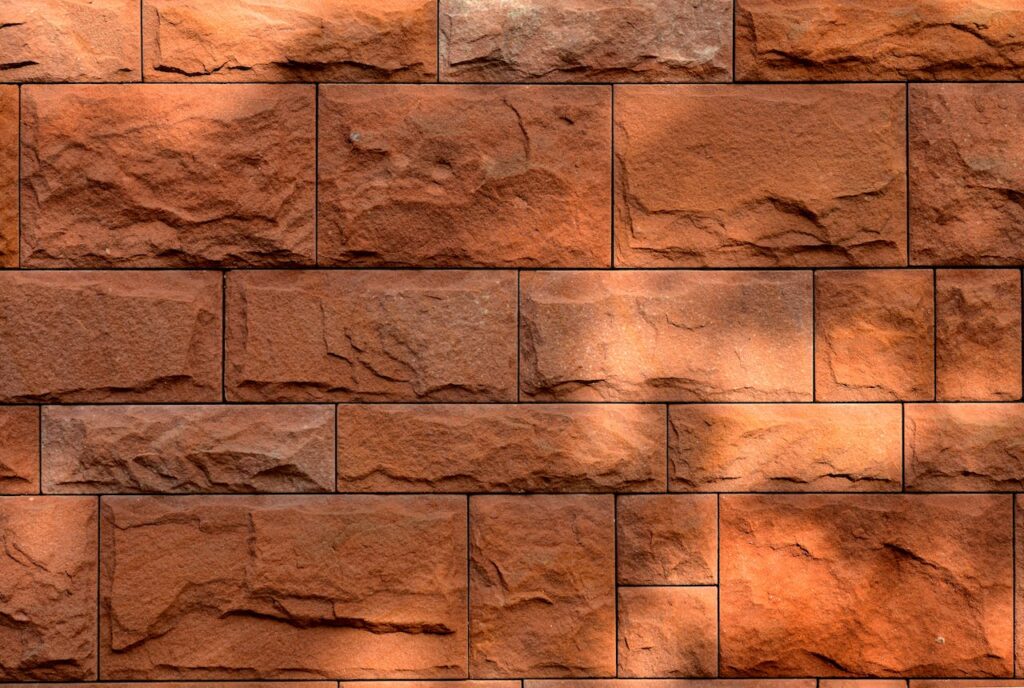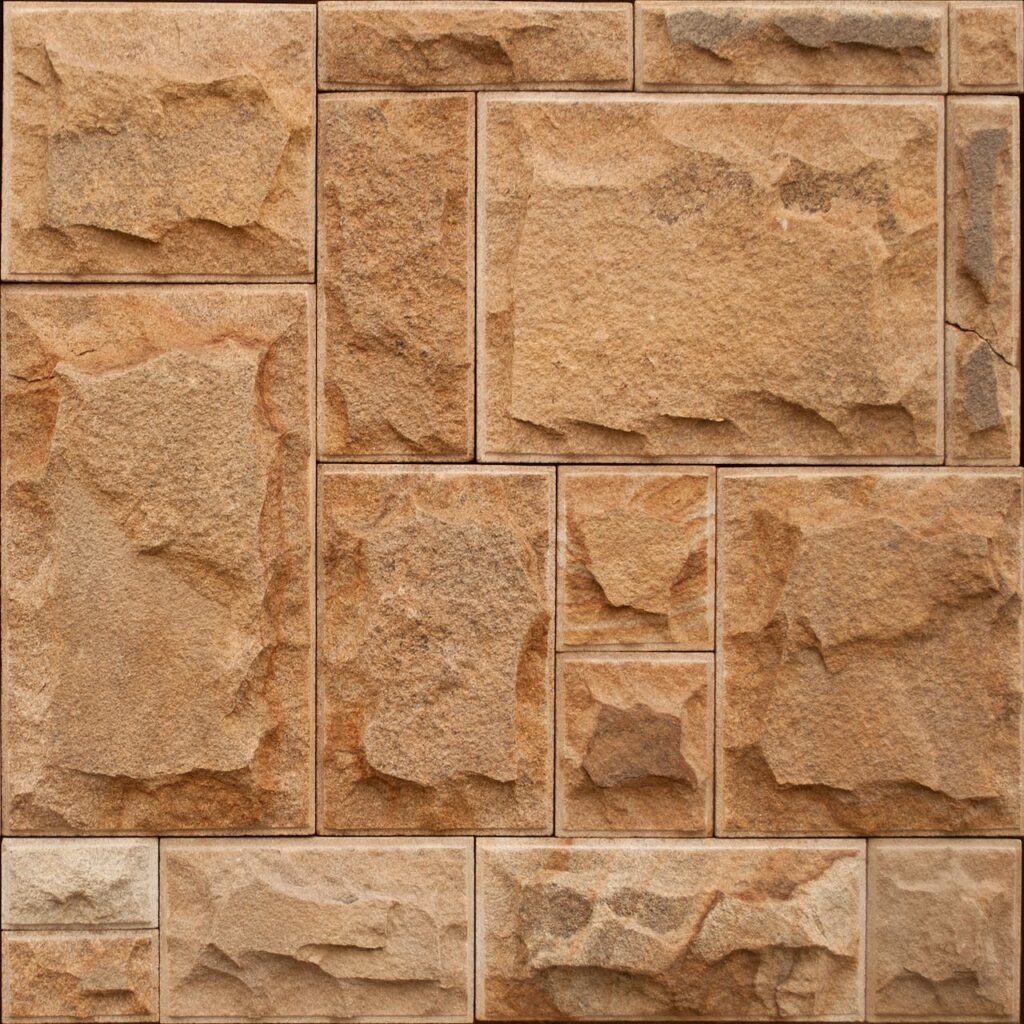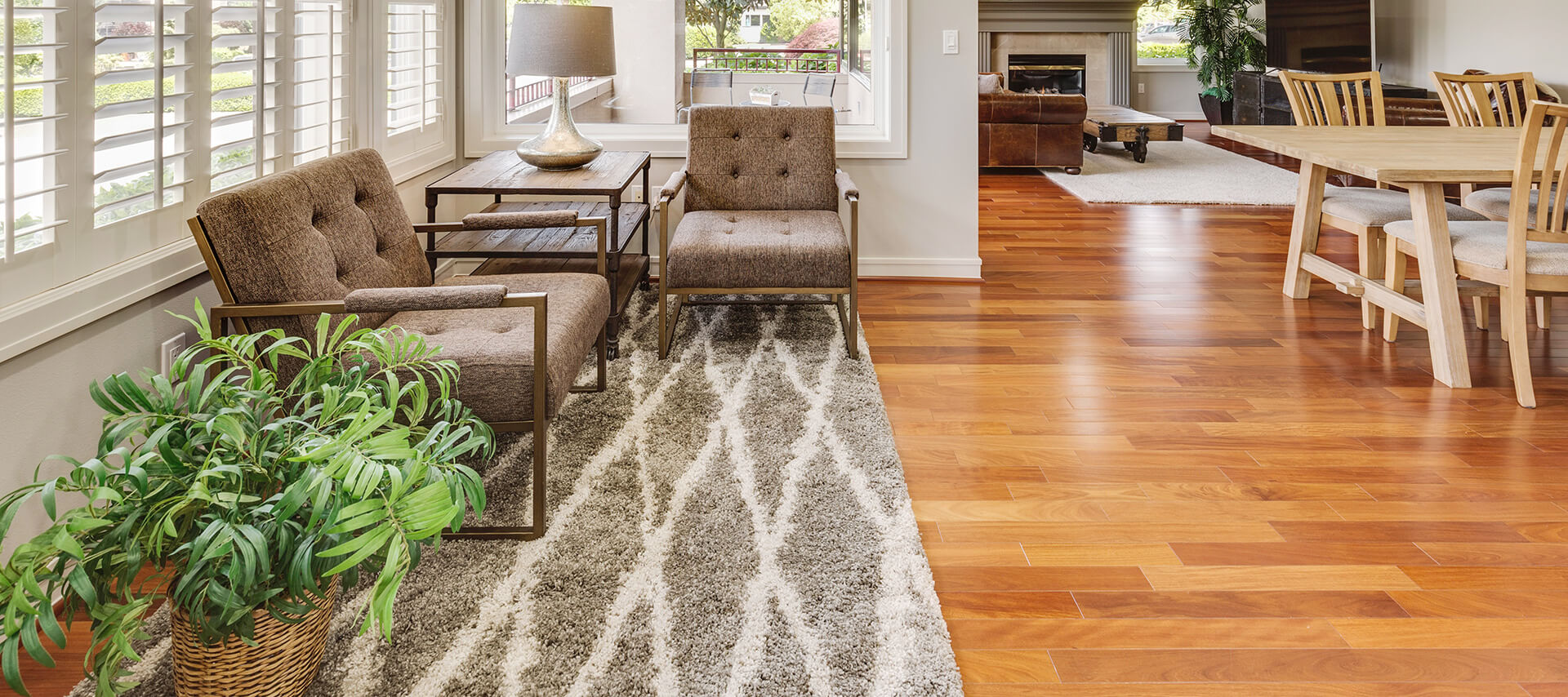Did you know that natural stone tiles are the preferred building material for many homeowners right now? These stone tiles not only add a touch of elegance and sophistication to walls and floors but also offer durability, making them an excellent choice for many homeowners’ building material projects. With their timeless beauty, natural stone tiles have become a popular building material for many homeowners, providing endless design possibilities. However, it’s essential to understand the pros and cons of using tile, stone floors, and other building materials before using them in your project. In this post, we’ll dive into the demonstration purposes of different natural stone tiles, a building material, and help you weigh the advantages and disadvantages they bring, including the finish. So let’s explore how stone floors and tile can enhance your living spaces while being mindful of potential dust issues.
Table of Contents
ToggleUnderstanding Different Types Of Natural Stone Flooring
Types Of Natural Stone Flooring
There are several types of building material, tile, stone floors, and finish to consider for your home project. These include marble, slate, granite, limestone, and travertine. Each tile type has its own unique characteristics and finish aesthetic appeal that can significantly impact the look and feel of your space.
Marble tile is known for its luxurious appearance and comes in a variety of colors with striking veining patterns. Slate tile offers a rustic, earthy charm with its textured surface and rich hues. On the other hand, granite tile boasts exceptional durability along with a polished finish that adds elegance to any room. Limestone tile exudes natural warmth and is available in various earthy tones, while travertine tile features a distinctive porous surface that lends a timeless beauty to floors.
Understanding these differences allows you to make an informed decision when selecting the most suitable natural stone tile for your home project.
Characteristics And Considerations
Each type of natural stone tile flooring has its own set of pros and cons that should be carefully considered before making a choice.
- Marble tile: Pros – Luxurious appearance; Cons – Susceptible to scratching or staining.
- Slate tile: Pros – Durable; Cons – Requires regular sealing maintenance.
- Granite tile: Pros – Exceptionally durable; Cons – Limited color options compared to other stones.
- Limestone tile: Pros – Natural warmth; Cons – Prone to etching from acidic substances.
- Travertine tile: Pros – Timeless beauty; Cons – Porous nature requires regular sealing.
Considering these aspects will help you weigh the benefits against the drawbacks based on your specific needs and preferences when deciding on the ideal natural stone tile for your home project.
Pros And Cons Of Marble Tile Flooring
Pros
Marble tile flooring is renowned for its luxurious and elegant appearance. The natural veining and unique patterns of tile add a touch of sophistication to any space, making it a popular choice for upscale homes and commercial buildings. Marble is incredibly durable, able to withstand heavy foot traffic without showing significant wear and tear. This makes it an ideal option for areas that experience high volumes of activity, such as entryways or living rooms.
Moreover, marble has excellent heat resistance properties, allowing it to stay cool underfoot even in warm climates. This makes it particularly desirable for use in regions with hot weather conditions where maintaining a comfortable indoor temperature is crucial.
- Luxurious and elegant appearance
- Exceptional durability
- Heat resistance properties
Cons
On the flip side, one significant drawback of marble tile flooring is the regular maintenance it demands to preserve its luster. Without proper care, the surface can lose its sheen over time due to scratches or etching from acidic substances like citrus juices or vinegar. As such, homeowners must be prepared to invest time and effort into regular cleaning and sealing routines to keep their marble floors looking pristine.
Furthermore, despite being durable against physical impact, marble is vulnerable to staining from spills of liquids like wine or coffee if not promptly cleaned up. This susceptibility means that extra caution must be exercised when using this type of flooring in areas prone to accidental spills.
In addition to these maintenance requirements, the initial cost of installing marble tile flooring can be quite substantial compared to other options on the market. Homeowners should consider their budget carefully before committing to this investment.
Slate Stone Flooring Benefits And Drawbacks
Natural Beauty
Slate stone flooring is popular for its natural beauty and rustic charm. When used in home projects, it can add a unique, earthy feel to the space. The natural variations in color and texture make each slate tile distinctive, contributing to an overall visually appealing aesthetic.
Slate’s distinctive appearance allows homeowners to achieve a one-of-a-kind look that cannot be replicated with other materials. The diverse range of colors available – from rich reds and browns to deep grays and blacks – offers versatility in design choices, making it suitable for various interior styles.
Durability And Resistance
One of the major benefits of using slate stone tiles is their high durability. They are incredibly resilient against heavy foot traffic, making them ideal for areas prone to wear and tear such as hallways, kitchens, or entryways. Slate is highly resistant to scratches and stains due to its dense composition.
The durable nature of slate makes it an excellent long-term investment for homeowners looking for flooring options that will stand the test of time without losing their appeal. This quality also reduces maintenance needs over time compared to less durable materials like hardwood or carpeting.
Cost Considerations
While there are numerous advantages associated with using slate stone tiles in home projects, cost can be a significant drawback. In comparison to other natural stone options like marble or limestone, slate can be more expensive, impacting budget considerations during renovation or construction projects.
The higher price point may deter some homeowners from choosing slate as their primary flooring material despite its desirable characteristics. However, it’s essential for individuals considering this option to weigh the long-term benefits against the initial investment when making decisions about their home improvement plans.
Engineered Stone Flooring Versus Natural Stone
Engineered Stone Flooring Versus Natural Stone
Homeowners often consider the choice between engineered stone flooring and natural stone. Engineered stone flooring is a hard surface made from a combination of natural stone and resin, offering greater consistency in color and pattern compared to natural stone. This type of flooring is less likely to be slippery due to its uniform surface texture.
Engineered stone has its advantages, such as being more resistant to stains and scratches than some types of natural stone. However, it may lack the unique variations found in natural stones like marble or granite. On the other hand, natural stone floors provide an authentic look with distinctive patterns and textures that cannot be replicated by engineered options.
Natural stones like slate offer durability, making them suitable for high-traffic areas in homes. They also come in various colors, adding versatility to design options. However, they require regular sealing maintenance due to their porous nature which can make them susceptible to staining.
In contrast, limestone offers a softer appearance but requires more frequent maintenance due to its susceptibility to scratching and etching from acidic substances like lemon juice or vinegar spills.
Travertine presents a timeless elegance with unique patterns formed by mineral deposits over time; however, it’s prone to damage from harsh cleaning products containing acids or alkalis.
Pros
- Engineered stone provides greater consistency in color and pattern.
- It is less likely to be slippery due to its uniform surface texture.
- Natural stones offer an authentic look with distinctive patterns not found in engineered options.
- Slate offers durability suitable for high-traffic areas.
- Limestone adds versatility with various colors available for design options.
Cons
- Engineered stone lacks the unique variations found in natural stones like marble or granite.
- Regular sealing maintenance is required for porous natural stones like slate.
- Limestone requires more frequent maintenance due to susceptibility to scratching and etching from acidic substances.

Comparing Natural Stone And Porcelain Tile Features
Unique Aesthetic Appeal
Natural stone tiles, such as marble, granite, and travertine, boast unique variations in color, veining, and texture. These distinctive features give them a one-of-a-kind appearance that adds character to any space. For example, marble exhibits elegant veining patterns that create a luxurious and sophisticated ambiance in a room. On the other hand, travertine’s earthy tones with natural pits and voids offer a more rustic and warm aesthetic.
These unique variations make natural stone tiles an excellent choice for homeowners seeking to infuse their spaces with individuality. The organic beauty of these materials can elevate the overall look of a room by adding depth and visual interest. However, it’s essential to consider that this diversity might also pose challenges when trying to achieve a consistent look across larger areas or multiple rooms.
Sleek Modern Look
In contrast to natural stone tiles’ inherent variations in appearance, porcelain tiles are known for their uniformity in color and pattern. This consistency offers a sleek and modern aesthetic ideal for contemporary design schemes. Porcelain tiles come in various finishes such as matte or polished surfaces which further contribute to their versatility.
The uniform nature of porcelain makes it easier to achieve a seamless look throughout an entire area without worrying about stark differences between individual pieces. This predictability can be advantageous when aiming for a clean-lined or minimalist design scheme where continuity is crucial.
Advantages Based On Desired Aesthetic
When considering the pros and cons of different natural stone tiles for your home project, it ultimately boils down to your desired aesthetic outcome. If you prioritize uniqueness and want each tile to tell its own story through distinct patterns and colors, then natural stone may be the perfect fit for you.
On the other hand, if you lean towards achieving a more consistent appearance with minimal variation from tile to tile while maintaining modern elegance within your space—porcelain could be the better option.
Pros:
Natural Stone Tiles:
- Unique variations add character.
- Organic beauty elevates room aesthetics.
Porcelain Tiles:
- Uniformity creates sleek modern looks.
- Easier achievement of seamless appearances.
Cons:
Natural Stone Tiles:
- Variations may pose challenges in achieving consistency.
Porcelain Tiles:
- Lack of variation might not suit every design preference.
Installation And Maintenance Of Natural Stone Tiles
Proper Installation
Hiring a professional installation team is crucial. Improper installation can lead to various issues such as uneven surfaces, cracks, or even breakage. A skilled team will ensure that the tiles are laid out correctly, minimizing the risk of damage.
It’s essential to consider the type of natural stone being installed since each has its own specific requirements. For instance, marble may need extra care due to its susceptibility to scratching and staining. On the other hand, granite is more resilient but requires careful handling during installation due to its weight.
Maintenance And Cleaning
Regular cleaning plays a significant role in preserving the beauty of natural stone tiles. Using mild soap or pH-neutral cleaners specifically formulated for natural stone helps prevent damage from harsh chemicals. Excessive water should be avoided as it can seep into porous stones like limestone and cause moisture-related issues over time.
Applying a protective sealant after installation is vital for safeguarding natural stone against stains and water damage. The sealant acts as a barrier that inhibits liquids from penetrating the surface while still allowing the stone to breathe.
Specific Maintenance Guidelines
Different types of natural stones have varying maintenance needs due to their unique compositions and characteristics. For example:
- Marble: Requires regular resealing due to its porous nature.
- Slate: Should be periodically treated with an enhancing sealer for maintaining its color depth.
- Travertine: Needs specialized cleaning products designed specifically for calcium-based stones.
Following these specific guidelines ensures that each type of natural stone receives adequate care tailored to its individual properties.
Design And Style Options With Natural Stone Tiles
Versatile Color, Pattern, And Finish
Natural stone tiles offer a wide range of colors, patterns, and finishes. From the warm earthy tones of travertine to the sleek modern look of quartz, there’s a natural stone for every design preference. Whether you’re aiming for a traditional or contemporary style in your home project, these stone tiles can effortlessly complement any aesthetic.
Natural stone tiles provide endless options. For instance, you can use vibrant slate tiles to bring a pop of color to an outdoor patio or choose elegant marble for a luxurious look in your bathroom.
The versatility of natural stones allows homeowners and designers alike to experiment with different combinations of colors and textures. This means that when working on various projects such as kitchen backsplashes or flooring installations, they have the freedom to mix and match different types of natural stone tiles for unique visual effects.
Creating Diverse Design Styles
In interior design projects like kitchen renovations or bathroom remodels, using natural stone tile offers the opportunity to achieve diverse styles. The timeless appeal of granite adds elegance while enhancing functionality in kitchens through its durability. On the other hand, limestone brings warmth into living spaces with its subtle yet beautiful color variations.
For outdoor applications such as patios or pool decks, sandstone provides both practicality and aesthetics by offering slip-resistant surfaces while exuding natural charm. Moreover, when seeking a more modern look indoors or outdoors alike, homeowners can opt for engineered quartz that delivers not only contemporary style but also exceptional durability against wear and tear.
Lifespan And Long-Term Value Of Stone Flooring
Natural stone flooring offers remarkable durability with a lifespan that can extend for decades when properly maintained. This longevity makes it a wise investment, adding substantial long-term value to your home. Despite the higher upfront cost compared to other flooring options, the enduring value of natural stone far surpasses the initial expense.
The durability of natural stone tiles ensures that they can withstand heavy foot traffic without showing significant wear and tear. As a result, you won’t have to worry about replacing or repairing your flooring frequently, saving you both time and money in the long run. The timeless appeal of natural stone contributes to its lasting value, making it an attractive feature for potential homebuyers if you ever decide to sell your property.
When comparing the initial cost per square foot of different types of flooring materials, such as hardwood or laminate versus natural stone tiles, it’s important to consider their respective lifespans. While hardwood floors may require refinishing every 10 years or so and laminate may need replacement every 15-25 years, natural stone requires minimal maintenance over its lifetime.
Moreover, investing in high-quality natural stone tiles not only enhances the aesthetic appeal but also increases the overall market value of your home. For example, marble floors are known for their luxurious appearance and are often associated with upscale homes or commercial spaces. Onyx is another type of natural stone that exudes luxury due to its unique veining patterns and translucency when backlit.
Choosing Between Natural Stone And Ceramic Tile For Bathrooms
Luxurious Feel
Natural stone tiles can add a luxurious and spa-like feel to the space. Imagine stepping into a bathroom adorned with elegant marble or travertine tiles; it instantly creates an upscale ambiance. The natural variations in color and pattern of these stones bring a unique touch to each tile, making your bathroom feel like a personalized retreat.
On the other hand, ceramic tiles offer versatility in design options. They come in various colors, patterns, and textures, allowing you to achieve different styles such as modern, traditional, or eclectic. For those looking for budget-friendly choices without compromising aesthetics, ceramic tiles are an excellent option.
Water Resistance And Maintenance
Natural stone tiles vary in their water resistance properties. For example, granite is highly resistant to moisture due to its dense composition, making it suitable for bathrooms where water exposure is frequent. On the contrary, marble requires sealing over time to maintain its water-resistant qualities.
Ceramic tiles are generally more resistant to water compared to most natural stones. Their glazed surface makes them impervious to moisture penetration when installed correctly with tight grout lines. Additionally, maintenance for ceramic tiles involves simple cleaning routines using mild soap and water.
Personal Preference
When choosing between natural stone and ceramic tiles for your bathroom project, considering personal preference is crucial. Some individuals prioritize the luxurious appeal of natural stone despite maintenance requirements. Others may prefer the practicality of ceramic tiles that offer diverse designs at affordable prices. Understanding your preferences will guide you towards selecting the ideal material that aligns with both your aesthetic vision and practical needs.
Conclusion On Selecting Natural Stone Tiles For Your Home
Durability
Natural stone tiles are known for their durability. They can withstand heavy foot traffic and are resistant to scratches and chipping. For high-traffic areas in your home, such as the kitchen or entryway, natural stone tiles can be an excellent choice. They are also ideal for outdoor spaces like patios and walkways, where they can endure exposure to the elements without deteriorating quickly. However, it’s important to note that some types of natural stone, such as marble, may be more prone to scratching and etching compared to others.
Timeless Beauty
One of the most significant advantages of natural stone tiles is their timeless beauty. Each type of natural stone offers unique colors, patterns, and textures that can add a touch of elegance to any space in your home. From the warm, earthy tones of travertine to the striking veining of marble, natural stone tiles can elevate the aesthetic appeal of your home. However, it’s essential to consider that while some homeowners appreciate the natural variations in stone, others may prefer a more uniform look, which can be achieved with ceramic or porcelain tiles.
Endless Design Possibilities
Natural stone tiles offer versatility that allows for creative expression in your home projects. They can be used to create intricate mosaic patterns, feature walls, or stunning backsplashes in kitchens and bathrooms. The various finishes available, including polished, honed, and tumbled, provide different aesthetics to suit different styles. On the other hand, ceramic tiles often come in a wide range of colors and patterns that can mimic the look of natural stone at a fraction of the cost.
Consideration Of Specific Needs
Each type of natural stone has its own pros and cons, so it’s crucial to consider your specific needs when making a decision. For example, while granite is highly durable and resistant to heat and stains, it comes with a higher price tag compared to other natural stones like slate or limestone. Furthermore, some natural stones may require regular sealing to prevent staining or etching from acidic substances like lemon juice or vinegar.
Value And Aesthetic Appeal
With proper installation and maintenance, natural stone tiles have the potential to enhance both the value and aesthetic appeal of your home. They can contribute to a sense of luxury and sophistication that may attract prospective buyers if you decide to sell your home in the future. However, it’s essential to weigh this against the initial expense and ongoing maintenance costs associated with natural stone tiles.
Frequently Asked Questions
1. What Are The Benefits Of Choosing Natural Stone Tiles For Home Projects?
Natural stone tiles offer timeless beauty, durability, and a unique touch to your home. They can withstand heavy foot traffic and are suitable for various areas like kitchens, bathrooms, and outdoor spaces.
2. How Do I Decide Between Marble And Slate Stone Flooring For My Home Project?
Marble exudes elegance with its luxurious appeal but requires regular maintenance. Slate offers a rustic charm and is more durable in high-traffic areas. Consider your style preferences, maintenance capabilities, and the specific area’s usage.
3. Is Engineered Stone Flooring A Better Option Than Natural Stone?
Engineered stone provides consistency in color and pattern while being less porous than natural stones. However, it lacks the distinct variations found in natural stones. Consider factors such as budget, desired aesthetics, and long-term maintenance requirements.
4. What Are The Key Differences Between Porcelain Tile And Natural Stone Tile Features?
Porcelain tiles are manufactured from dense clay making them highly resistant to moisture absorption compared to natural stones which offer unique veining patterns but require sealing for protection against staining.
5. How Can I Ensure Proper Installation And Maintenance Of Natural Stone Tiles At Home?
Hiring experienced professionals ensures correct installation techniques that prevent issues like uneven surfaces or cracked tiles. Regular cleaning using pH-neutral cleaners helps maintain their luster while periodic resealing protects against stains.
Sources:
/home-improvement/flooring/stone-flooring-buying-guide/
/home-improvement/flooring/types-of-flooring/
/home-improvement/flooring/radiant-heating-floor-cost/
/home-improvement/flooring/best-flooring-installation-companies/

Discover The Elegance Of Natural Stone Flooring At K Floors In Concord, California!
K Floors is more than just a flooring provider; we are your allies in crafting spaces that exude sophistication and durability. Our wide array of natural stone flooring options, from elegant marble to sturdy granite and versatile slate, caters to every preference and requirement. Experience the unique K Floors approach. Our skilled team is ready to assist you, offering complimentary in-home consultations and a selection from the finest natural stone suppliers. Dive into our vast collection and find not just a floor, but a testament to your distinct taste.
At K Floors, we merge time-honored artisanship with contemporary aesthetics, ensuring each natural stone floor we install transforms your space into a haven of comfort and style. Whether it’s for residential or commercial spaces, we are dedicated to delivering excellence and authenticity. Visit us in Concord, California, and embark on your journey to the perfect natural stone flooring with K Floors.
Disclaimer
The materials available on this website are for informational and entertainment purposes only and not to provide legal advice. You should contact your attorney to obtain advice concerning any particular issue or problem. You should not act or refrain from acting based on any content included in this site without seeking legal or other professional advice. The information presented on this website may not reflect the most current flooring developments. No action should be taken in reliance on the information contained on this website and we disclaim all liability concerning actions taken or not taken based on any or all of the contents of this site to the fullest extent permitted by law.



